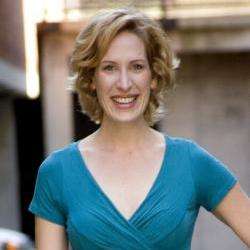17th Century Europe witnessed the rise of Italian opera and French ballet. These forms, and the distinct musical language of their composers, were highly influential on the music of England and Germany. The cosmopolitan music of Henry Purcell made up the bulk of The English Concert’s program, along with two instrumental works by his German contemporaries Heinrich Biber and Georg Muffat.
The Biber Sonata a 6 began the evening, a work that features the valveless Baroque trumpet with two violins, two violas, the violone (the predecessor to the double bass) and continuo, which in this case consisted of theorbo, cello, and organ, played by director Harry Bicket. The low strings gave a lovely sonority to the piece, which largely featured the instruments in various combinations of solos, duets, and trios, rather than in full ensemble. The fast parts were lively, but the phrasing did not line up well during the slow moments.
Countertenor Andreas Scholl joined the group for a set Purcell songs and airs and interludes from King Arthur. A beautiful singer whose talent has contributed to the early music revival, Scholl’s voice is unique in that it blends effortlessly between the range of a countertenor and a high tenor. Pitch perfect and with laser clarity, he never dropped into a raw chest voice. Still, throughout the evening Scholl appeared not to be using his full voice, staying in a narrow dynamic range and sometimes not entirely audible over the ensemble. His frequent throat-clearing in the second half of the program suggested that other forces were at work.
“Sweeter than roses” – with its Italianate coloratura and contrasts – and “Music for a while” – with its inventive use of a repeated bass figure – contained some attractive improvised interludes, and lovely matched phrasing between players and singer. Scholl’s physical presence was a bit distracting, with lots of hand waving and ambling about the stage. The best of the set came when Mr. Scholl sang “An Evening Hymn” from the music stand, adding tasteful ornaments throughout.
The band was lively on the opening numbers from King Arthur, generating a surprising amount of sound for one player per part. “O solitude,” which illustrates the possibilities of melody over a never-changing bass line, was touching but rather slow, and sounded as if it needed fuller accompaniment than the odd combination of modern cello with theorbo. The ensemble played brilliantly on the instrumental selections from King Arthur, especially the Symphony from Act V, which featured antiphonal moments between the violins, oboes, and trumpets. The highlights were Scholl’s rendering of “What power art thou” from the “Frost Scene,” in which the plodding, repeated vowels of the vocal line suggest the grumpy utterings of an ice god. “Fairest Isle,” Dryden’s hymn to England, was performed at a nicely-paced clip (sometimes it is far too slow), and Bicket brought out its French-inflected lilt by adding a touch of inegale to the straight eighth notes in the melody and accompaniment.
It’s not a Baroque concert without a good passacaglia, in this case from Muffat’s Sonata No. 5. The passacaglia – a dance-like repeated bass line that has its origins in the New World – is actually a cousin of the chaconne, which had its moment elsewhere on the program. While a true passacaglia bass repeats without variety, Muffat right away breaks from tradition with a five-measure opening phrase (instead of the standard four), a French-style rondeau structure (with a repeated triplet figure returning between other variations), and tuneful melodic and harmonic variations that make a dialogue among the instruments. The ensemble played with relish.
Purcell carried the rest of the program with highlights from The Fairy Queen, Dido’s Lament from Dido and Aeneas, and two “bonus tracks,” as Bicket announced, of “If music be the food of love” and “Strike the viol.” The instrumental works from Fairy Queen (Purcell’s semi-opera based on a Shakespeare’s Midsummer Night’s Dream) are just as tuneful and lovely as Mendelssohn’s more well-known piece of the same inspiration. The group played with remarkable unity of phrasing and connected playing. During the air “If love’s a sweet passion” the oboe and recorder alternated on the vocal line, and William Carter’s switch from theorbo to Baroque guitar during the second half of the program allowed for inventive countermelodies.
The ensembles low strings shone during Dido’s famous lament, which was dark and gorgeous in Scholl’s voice. In this and the other songs, Scholl was able to bring new meaning to each repetition of text, although his busy hand gestures and movements did not add to the drama. Still, the audience brought him back for an encore of “Music for a while,” and stayed under his spell a while longer.


